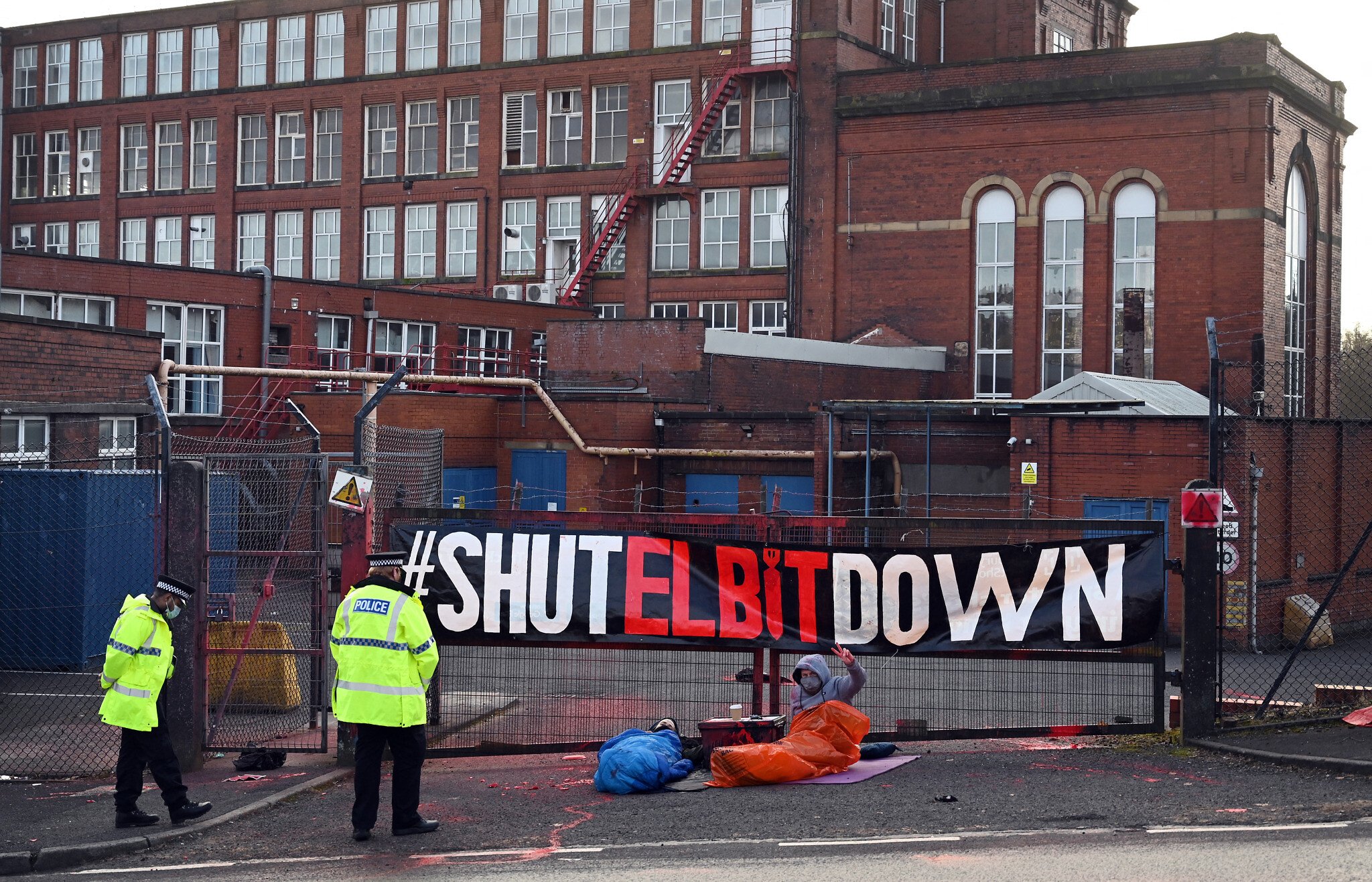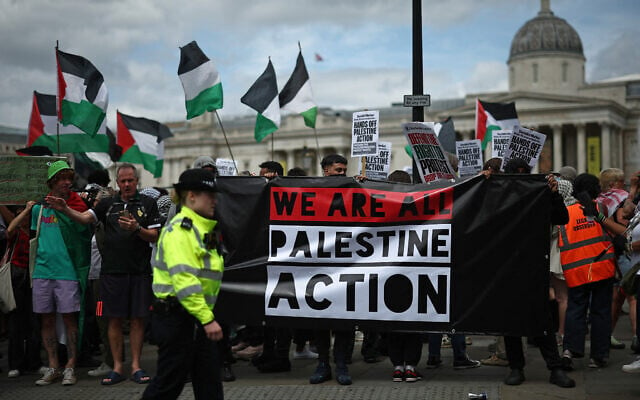


Israeli defense giant Elbit Systems quietly shut down one of its main UK facilities recently, according to a report published Saturday, after it was repeatedly targeted by activists from the now-banned Palestine Action protest group.
According to a report in The Guardian, Elbit’s factory in the southwestern city of Bristol was deserted when reporters visited the site this week.
Other than a security guard posted outside the gate, there were no staff on site, and the factory appeared to have been shut down, the report said.
Elbit Systems UK did not respond to the newspaper’s request for comment.
According to the report, the defense firm’s lease at the site was not set to expire until 2029.
Palestine Action, the now-proscribed anti-Israel activist group, repeatedly targeted the site with vandalism, break-ins and other disruptions since the war in Gaza began after the Hamas-led October 7, 2023, attacks in southern Israel.

The group has said the targeted site was Elbit’s new 35 million pound ($43 million) research and development hub. Elbit’s website says its UK subsidiary employs 680 people across 16 sites, working on multiple programs for the British military.
Elbit Systems is run separately from its parent organization in Israel, and previously told the BBC that claims the facilities supply the Israeli military are “completely false.”
A separate Elbit facility in the Bristol area has also been targeted by Palestine Action, including an incident last August in which two dozen activists were arrested on charges including burglary, criminal damage, violent disorder and hitting a police officer with a sledgehammer.

The UK government proscribed Palestine Action as a terror group in July after two planes were vandalized at a Royal Air Force base, causing an estimated £7 million ($9.3 million) of damage. More than 700 people have been arrested, mostly at demonstrations, since the group was outlawed under the Terrorism Act 2000. A total of 114 of those detained have been charged.
Rights groups have condemned the ban as legal overreach and a threat to free speech; however, the British government has defended the move by arguing the ban targets a specific organization with a history of criminal activity.

